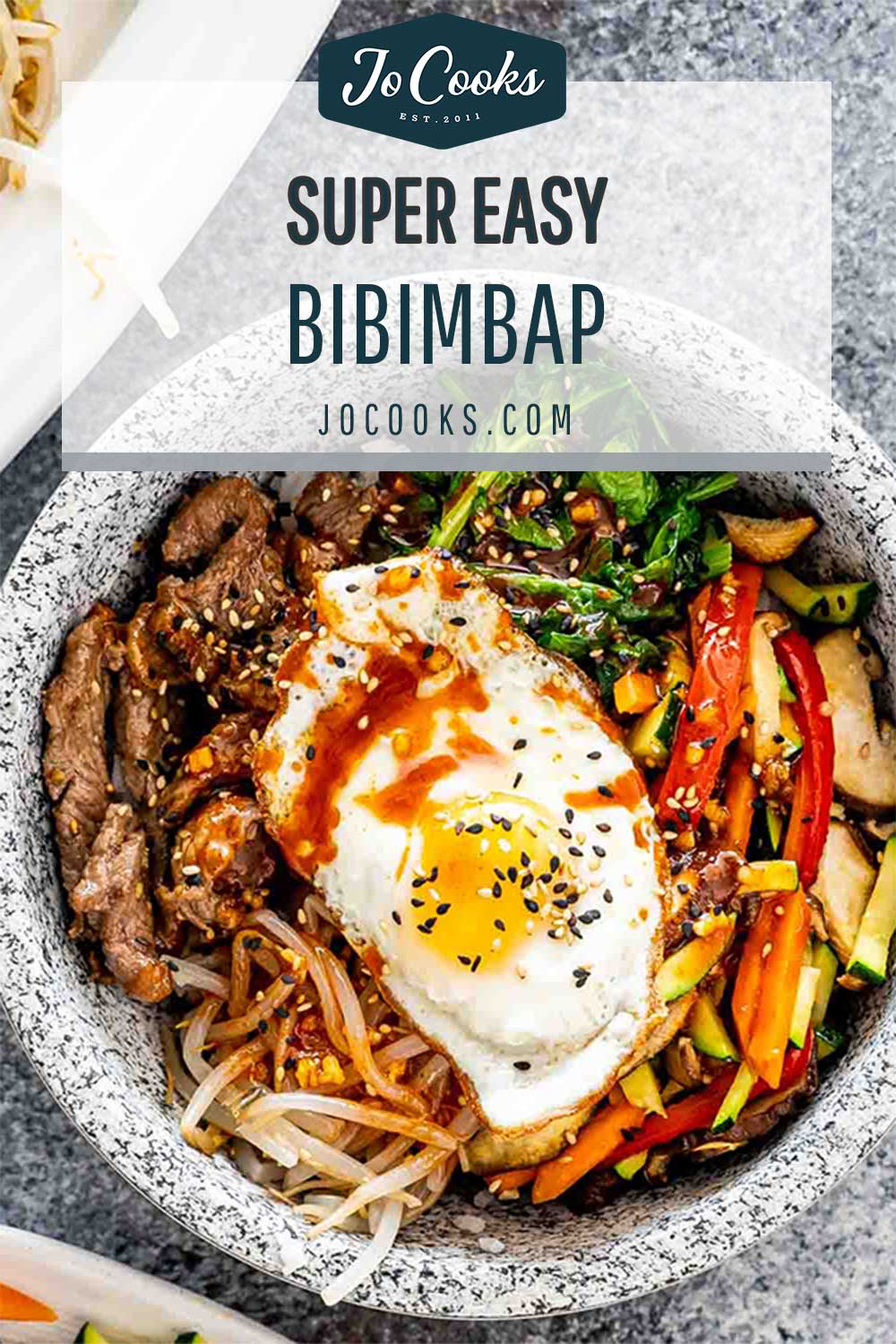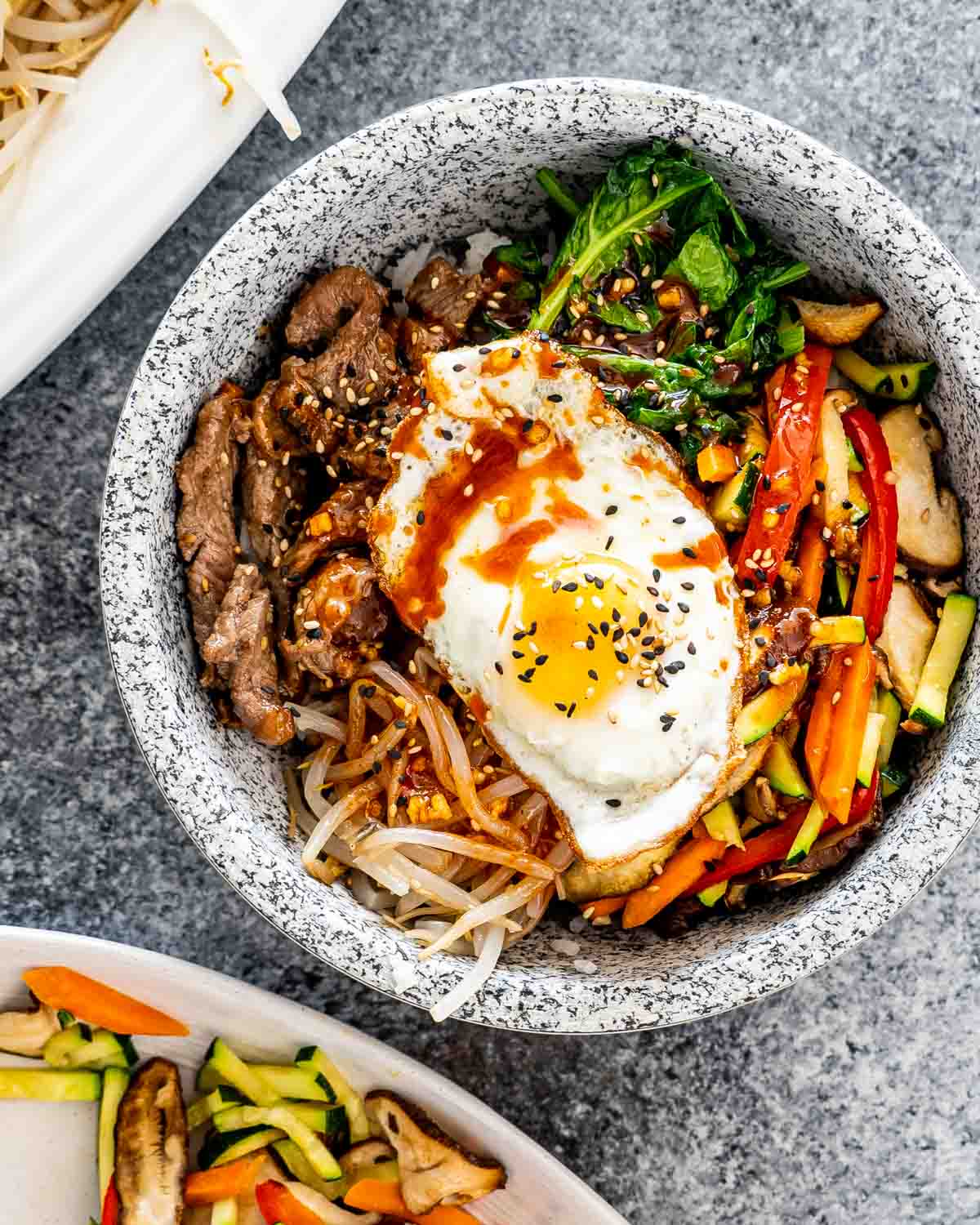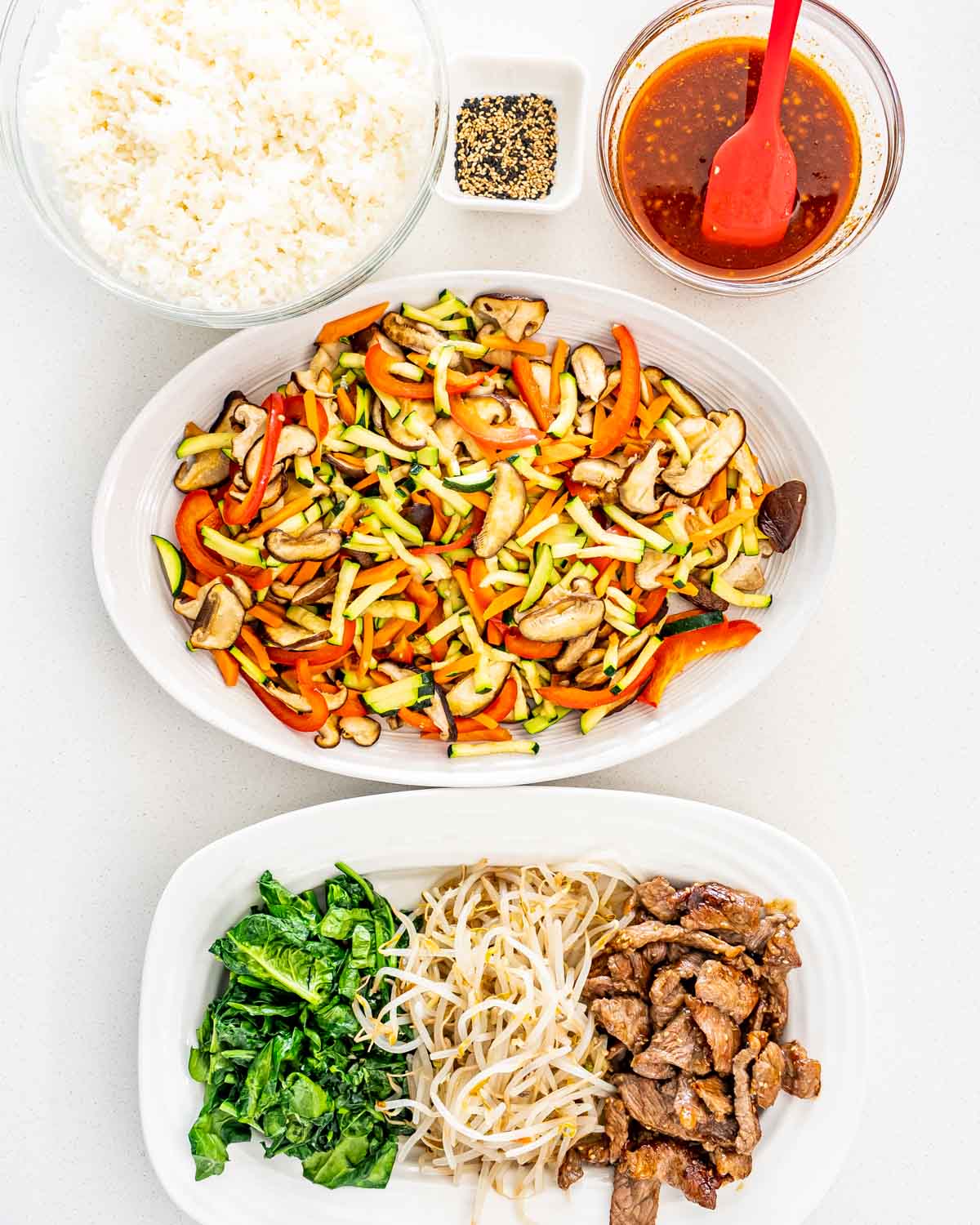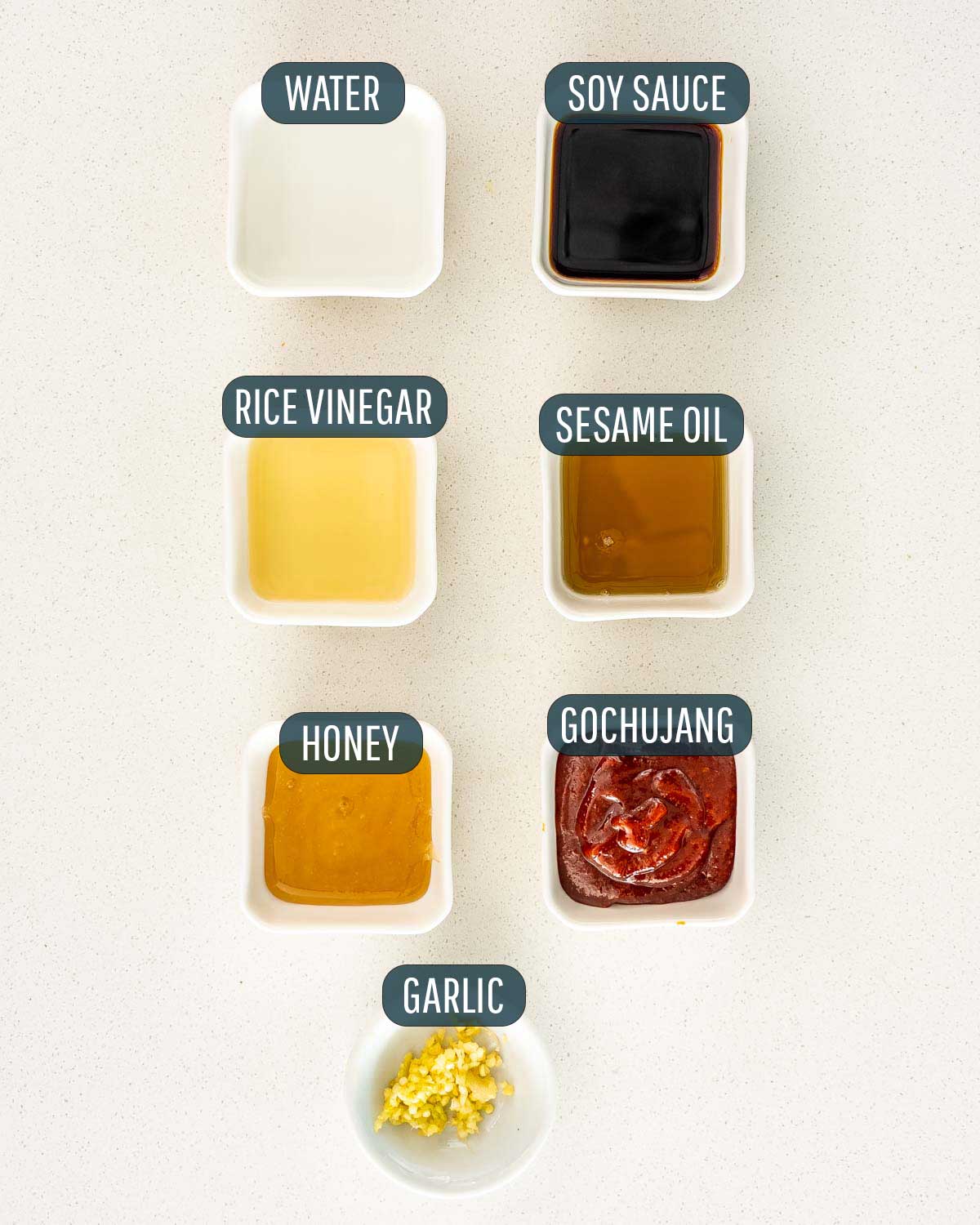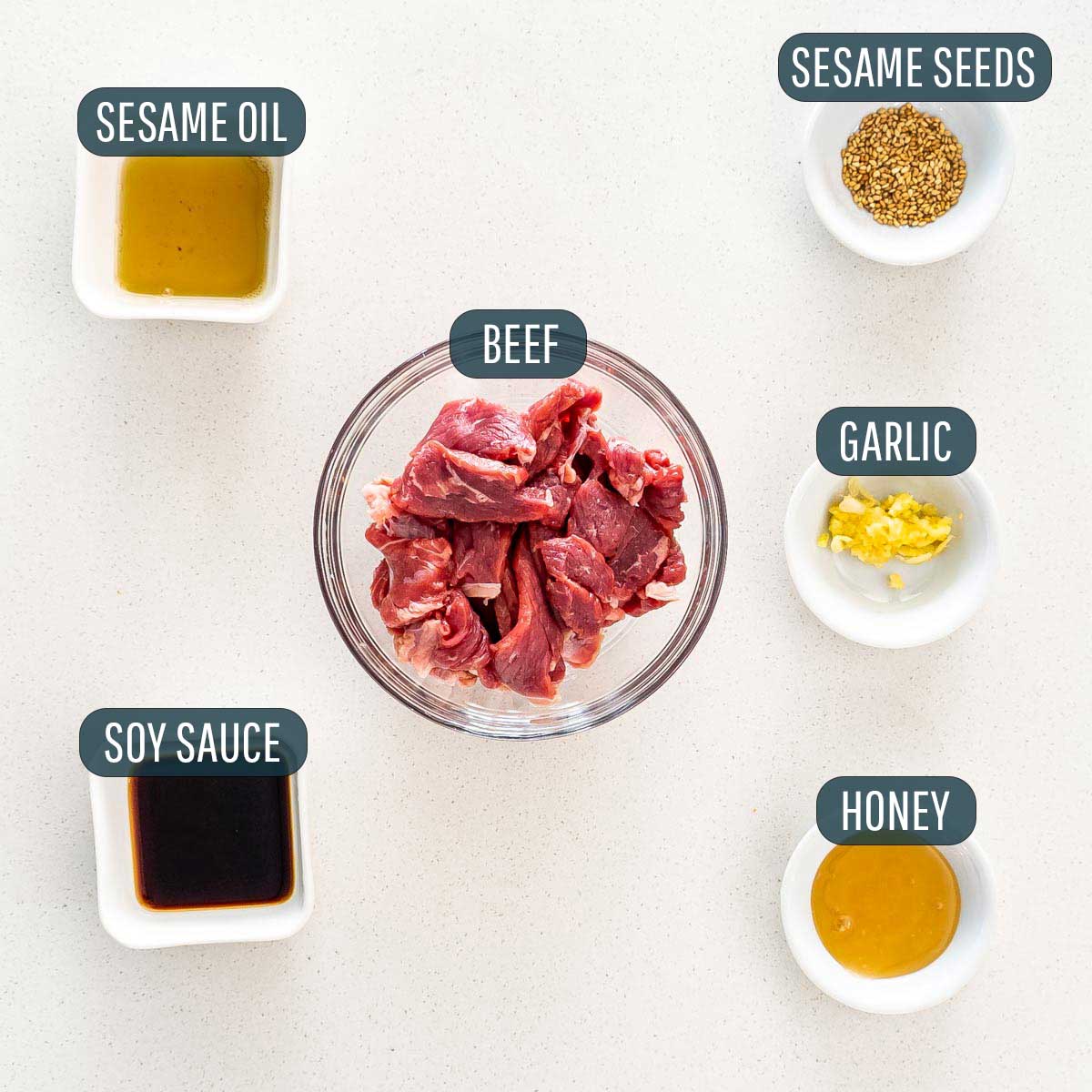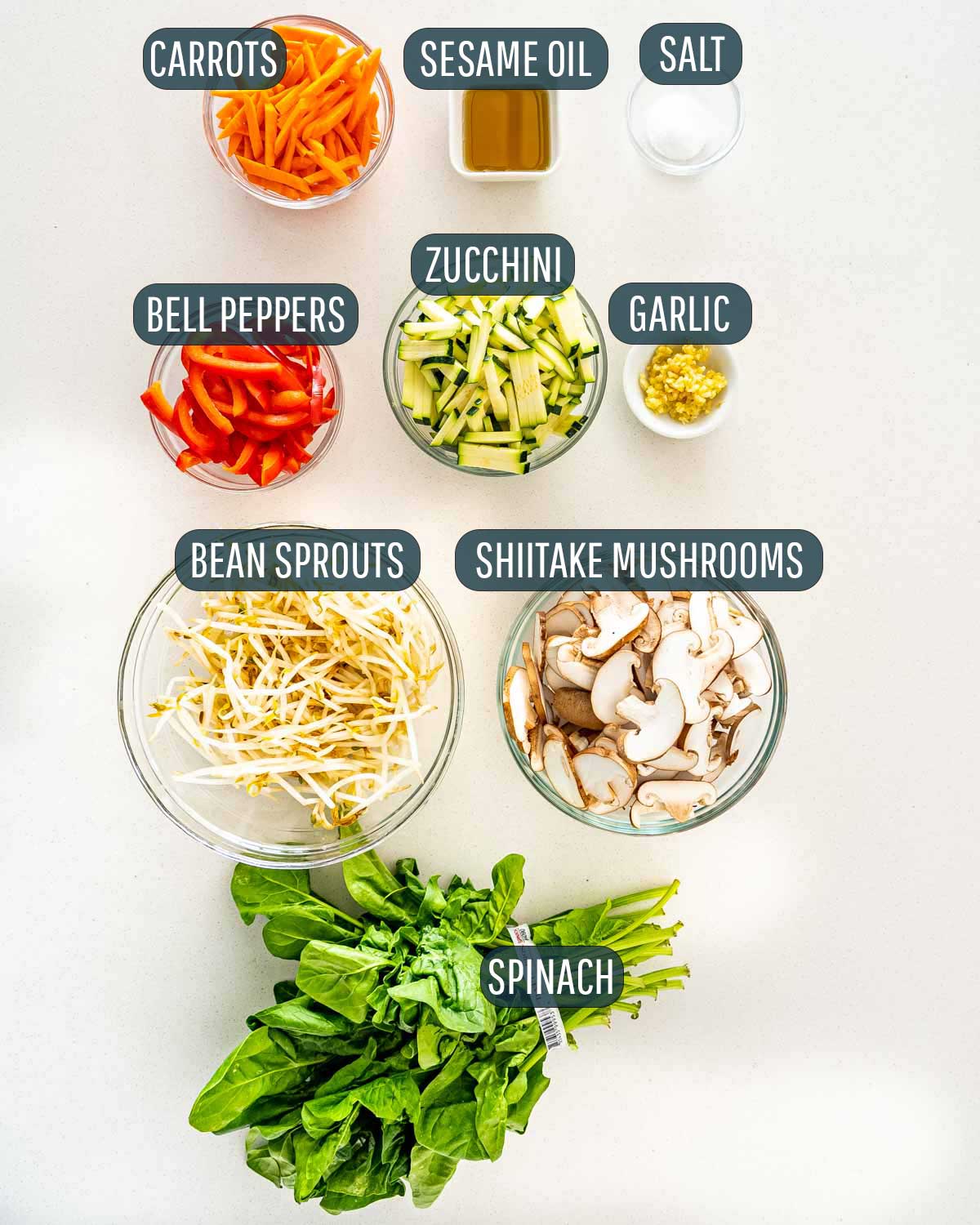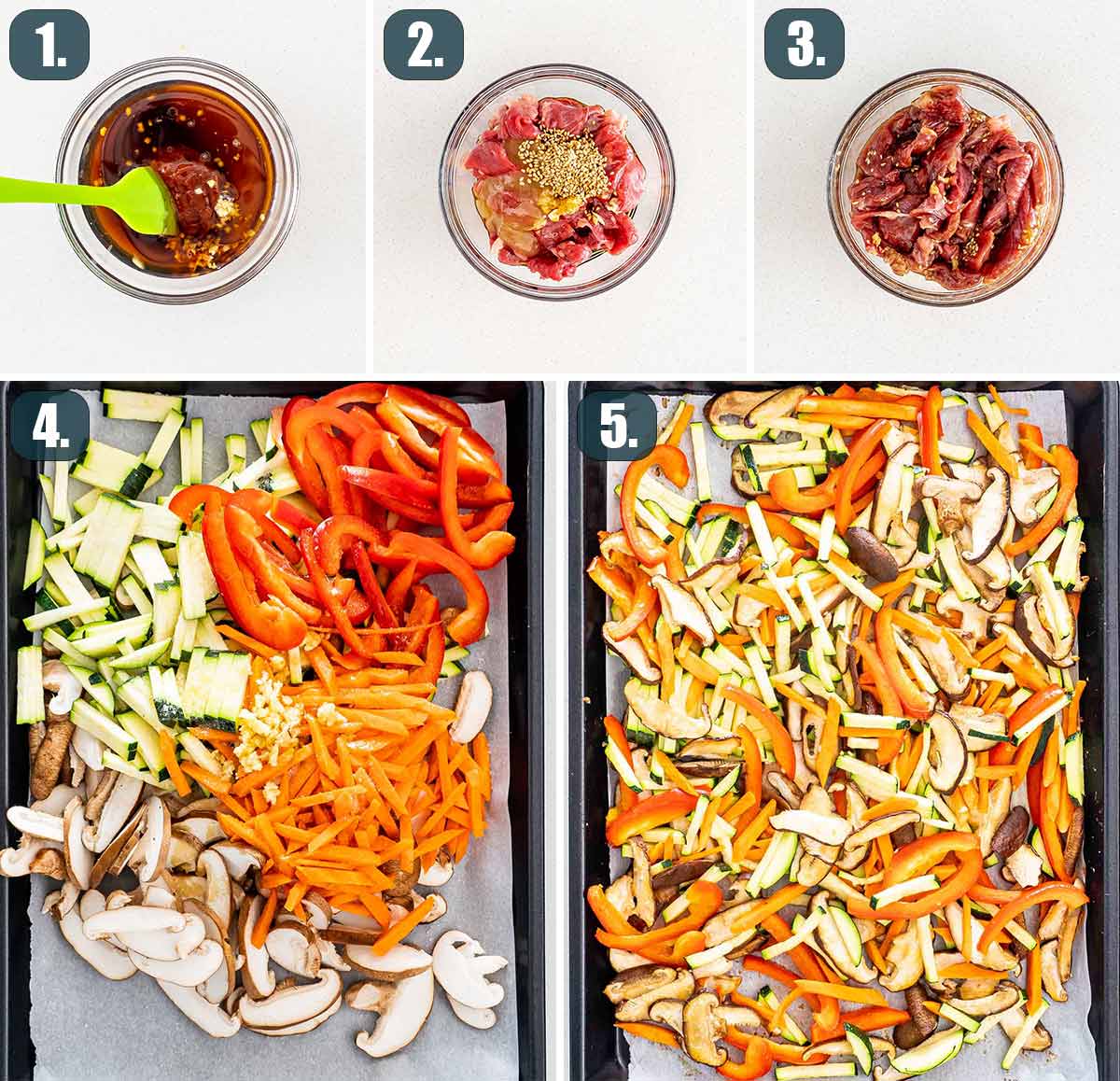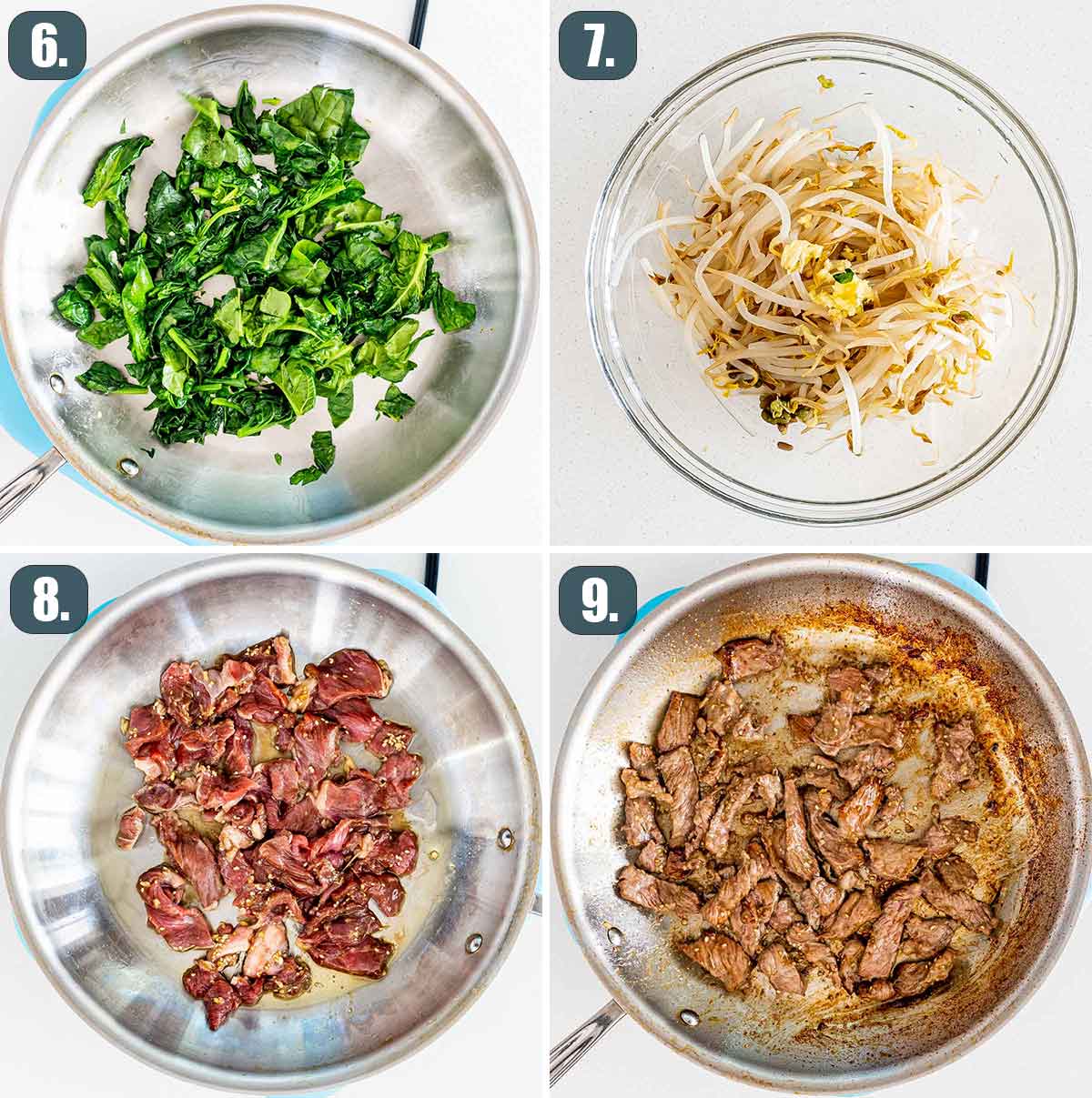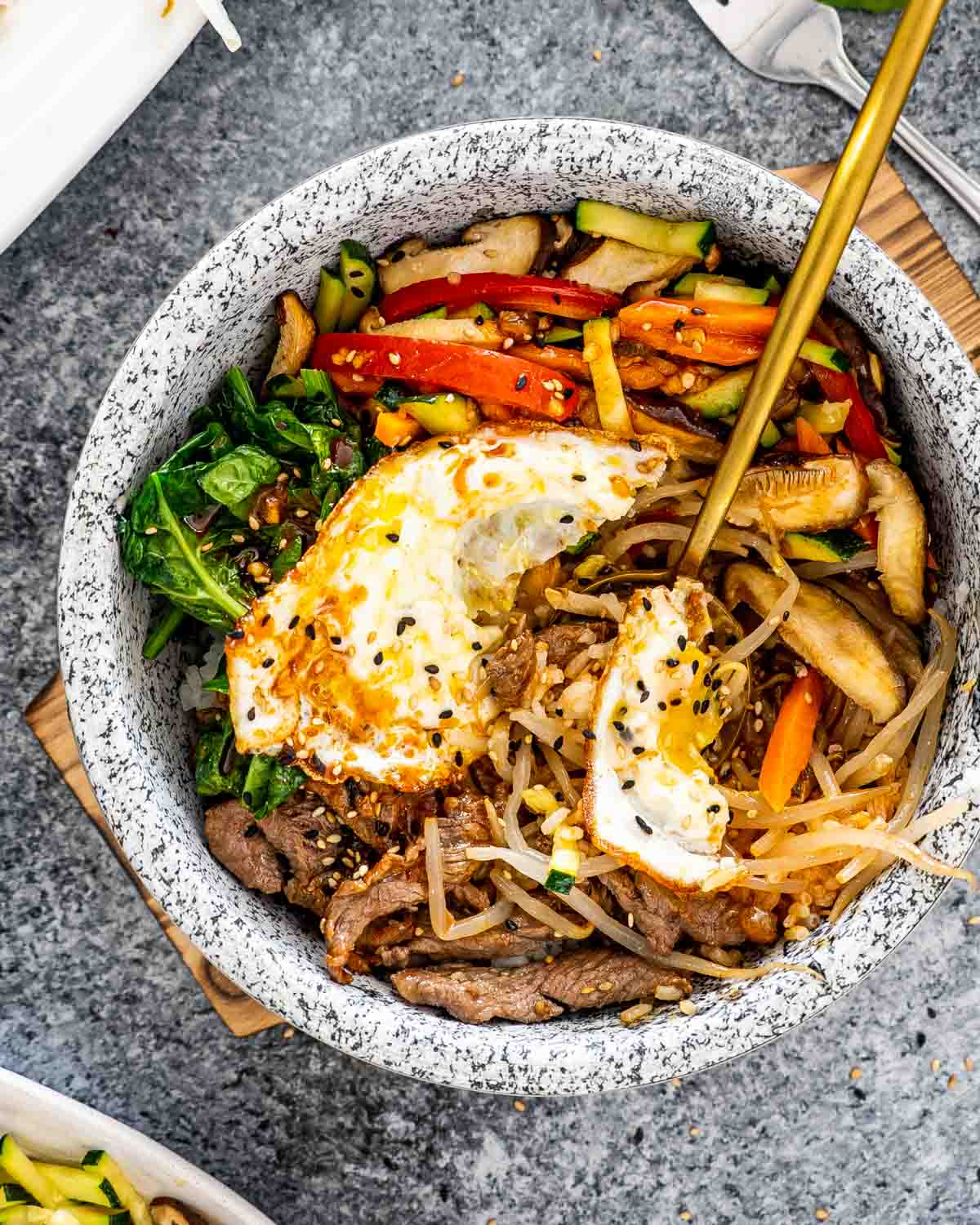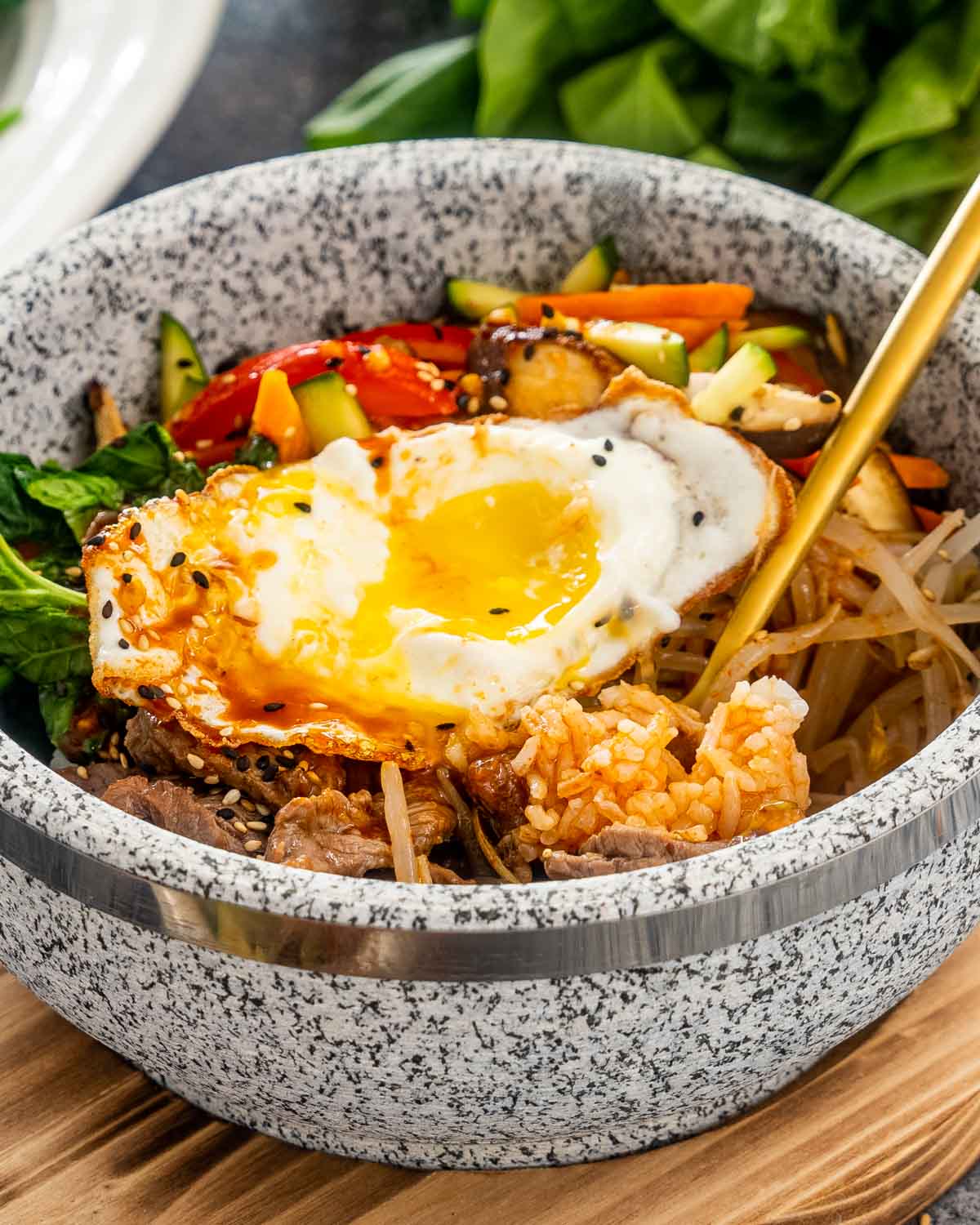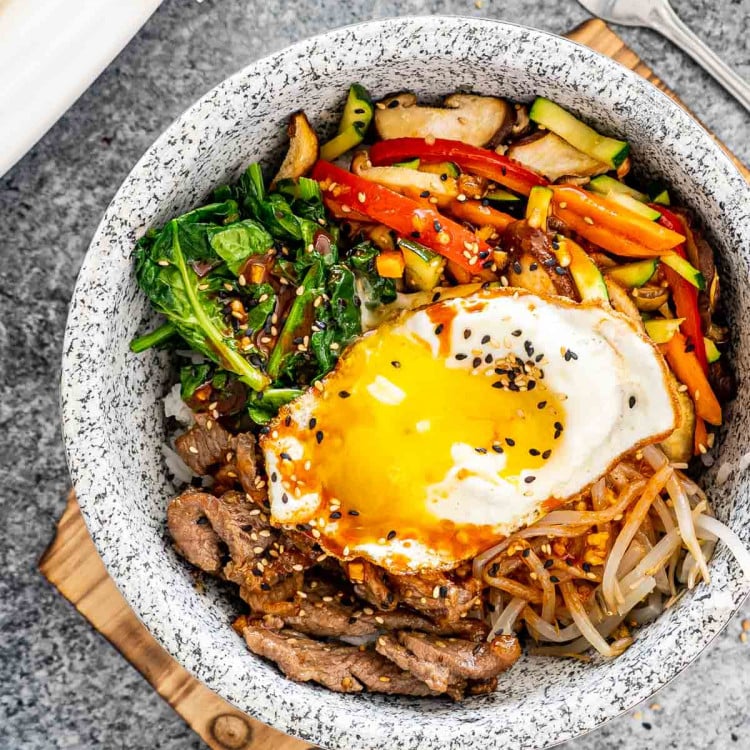Super Easy Bibimbap
Along with ordering Sticky Toffee Pudding, bibimbap was the number 1 dish I would order at a favorite restaurant I used to frequent, until they removed it from the menu because the bowls were too hot and people would burn themselves. Ever since then I’ve been dying to make my own bibimbap at home. While there are many bibimbap recipes out there, the one thing they have in common is that bibimbap usually comes with everything, lots of different veggies, beef, rice and the best part it comes complete with a fried egg on top. At this restaurant, they would actually just crack an egg right in your bowl and because the bowl was so hot, the egg would cook as you would mix it with the rest of the ingredients. Truly a great experience.
What Is Bibimbap
Bibimbap really means rice with mixed veggies and meat. It’s usually served with assorted vegetables that are all cooked separately, marinated beef that sometimes is actually served raw, a fried or raw egg or just a raw egg yolk on top and a delicious bibimbap sauce. While this dish can take quite a bit of time to make, mostly prep work, because as I said, all veggies are cooked separately, I tried to put my own spin on this and simplify it a bit by cooking most of the vegetables together.
Bibimbap Sauce
This sauce is so good and it’s a must in this dish because in my opinion, it’s what makes this bibimbap.
Gochujang – This is a spicy Korean paste made from red chili peppers, fermented soybeans, rice and salt. It’s used a lot in Korean cooking, so if you like spicy then buy a big tub of this gochujang and use it in everything. It’s that good. Sesame Oil – I actually love using toasted sesame oil in this sauce, but regular sesame oil will work as well. Honey – A little bit of sweetness to balance out the spiciness of this sauce. Garlic – You know we need some garlic in a sauce like this. I prefer to mince my own fresh garlic, but if you have the jarred kind that will work too. Soy Sauce – I always just buy the low sodium soy sauce because dishes such as this tend to have quite a bit of sodium, so I like to cut the salt wherever I can. Rice Vinegar – You’ll need a bit of rice vinegar to balance out all the flavors. Regular vinegar can be used as well or you can also sub it with apple cider or white wine vinegar.
Beef
Beef – You can use beef tenderloin, or steak like rib eye. You’ll want to make sure you cut this into really thin strips. Soy Sauce – Low sodium soy sauce. Honey – A little bit of honey to balance out the saltiness. Garlic – No marinade is complete without some fresh garlic. Sesame Oil – As I said, I prefer some toasted sesame oil, but use whatever you have. Sesame seeds – A few toasted sesame seeds for a bit of nutty flavor and crunchy texture.
Vegetables
Carrots – You’ll need a large carrot which I cut into thin 2-inch strips. You can also use shredded carrots. Bell Peppers – I chose red bell peppers to have a rainbow of colors in the veggies, but you can really use any bell peppers you have. You also want these cut into 2-inch thin strips. Zucchini – You’ll need a large zucchini cut into thin strips as well. Bean Sprouts – Lots of bean sprouts, which is a must in this dish. Shiitake Mushrooms – Sliced thinly. Can be subbed with cremini mushrooms. Spinach – You’ll want to use fresh spinach, I don’t recommend using frozen. Other – You’ll need some garlic, sesame oil and salt to season all the veggies.
Prep Work
Vegetables
Cook Meat
Assemble Bowls
Leftovers
I recommend storing leftover ingredients individually in airtight containers, rather than assembling bowls, in the refrigerator for up to 3 days.
Love Rice Bowls? Try These
Meatball Banh Mi Bowls Korean Beef Rice Bowls Spicy Fish Taco Bowls
More Korean Recipes To Try
Korean Style Pork Chops Korean Fried Chicken Sweet and Spicy Korean Meatballs Korean Beef Bulgogi Korean Beef Stir Fry BBQ Ribs Korean BBQ Chicken Korean Beef Rice Bowls
